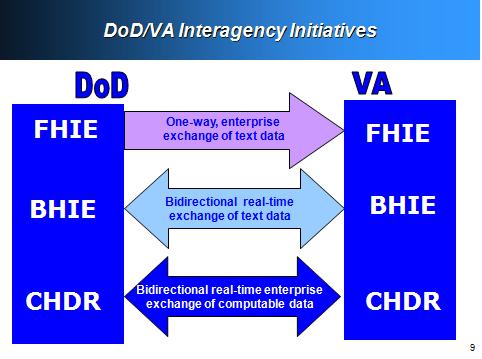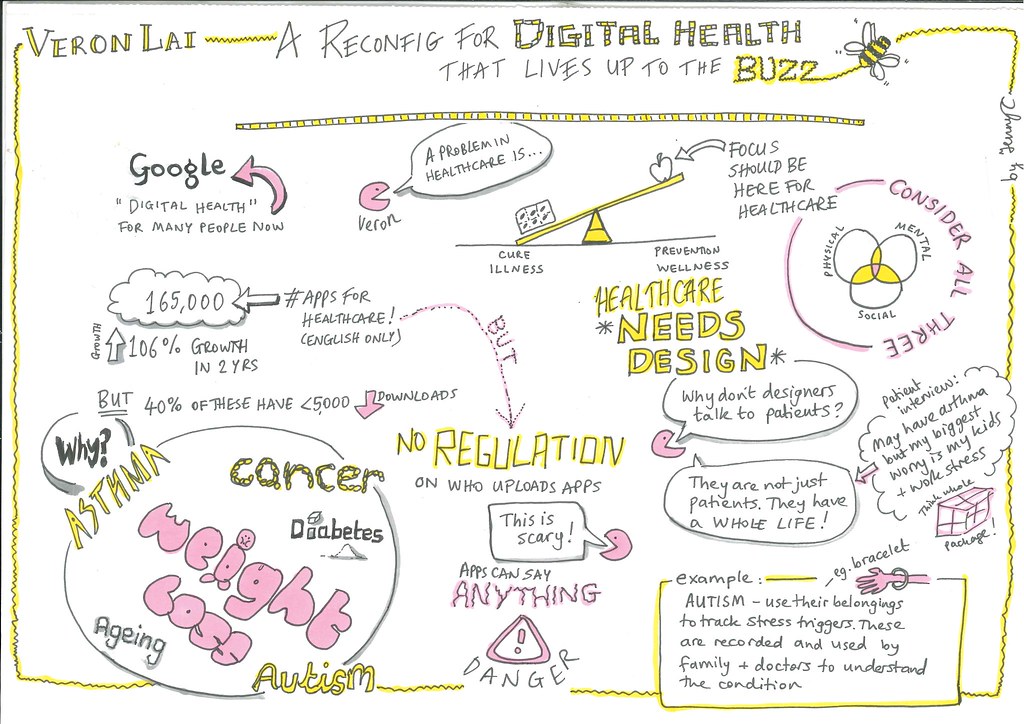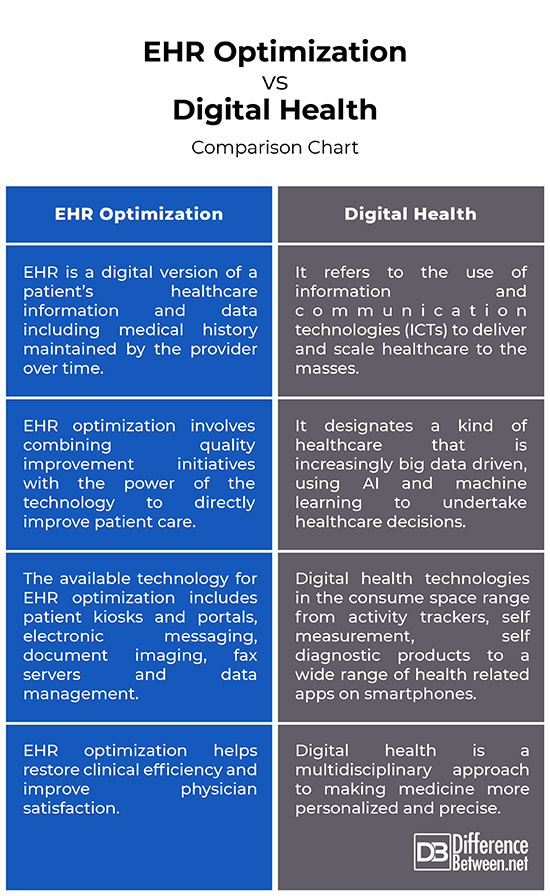Difference Between EHR Optimization and Digital Health
The practice of medicine goes back thousands of years. There’s ample evidence that suggests humans have been practicing some or other form of medicine since the Stone Age. In fact, studies suggest they even developed primitive instrumentation to perform surgeries. While modern medicine and surgery have evolved dramatically during the past few decades in their approach to illness and disease, the essence of the business model of medicine remains unchanged. It was almost impossible to see the kind of progress that we have witnessed today in the field of medicine and surgery. There are several technologies that are being implemented with great success to make this a reality.
Healthcare is evolving at an unprecedented rate and our smartphones and mobile devices are driving that disruption, better connecting us with the ones who help keep us healthy and happy. Existing initiatives and resources are actively in play at multiple levels – including electronic health records (EHRs), personal health records (PHRs), Telehealth, digital health, health information databases maintained by healthcare providers, health insurers, and regulatory agencies. Each adds important capacity for clinical care, healthcare services, patient education and self-management, and so on.

What is EHR Optimization?
Electronic Health Records (EHRs) are rapidly becoming a must in the healthcare industry and choosing the right EHR system is one of the most important decisions a medical practice can make. To really get what EHR optimization is all about, you first need to understand what an EHR means to your practice. EHR is a digital version of a patient’s medical records including medical history maintained by the provider over time. The history of the EHRs can be traced back to the 1960s. Much of today’s EHR technology is based on the pioneering work of Lawrence Weed, MD. Medical professionals and healthcare providers have been storing and maintaining healthcare data electronically since the invention of the personal computer. Optimal use of EHRs requires adopting a plan for continuous quality improvement. When speaking of EHR optimization, it involves combining quality improvement initiatives with the power of the technology to directly improve patient care.

What is Digital Health?
Digital health refers to the use, implementation and leverage of information and communication technologies (ICTs) to deliver and scale healthcare to the masses. It is the use of technology to help improve individuals’ health and wellness. Digital health is being implemented in daily clinical practice throughout the world – from simple software algorithms utilized in feature phones to very interactive software applications used in smartphones. The low cost of these digital health innovations make them attractive to emerging markets. The term has been used variously in different countries and contexts to designate diverse phenomena. However, regardless of how it’s defined, digital health designates a kind of healthcare that is increasingly big data driven, using AI and machine learning to undertake healthcare decisions. Rapid developments in digital communication technologies have fueled the use of mobile phones for delivering healthcare services and information – a phenomenon termed mobile health. Digital health is a multidisciplinary approach to making medicine more personalized and precise.
Difference between EHR Optimization and Digital Health
Meaning
– EHR is a digital version of a patient’s medical records including medical history maintained by the provider over time. When speaking of EHR optimization, it involves combining quality improvement initiatives with the power of the technology to directly improve patient care. Digital health is a much broader concept that refers to the use and implementation of information and communication technologies (ICTs) to deliver and scale healthcare to the masses. Digital health is a multidisciplinary approach to making medicine more personalized and precise.
Technology
– Digital health is a term most commonly used in a broad context, including everything having to do with some electronic/digital function in the domains of wellness, health and healthcare, both in the professional and the consumer space. Digital health technologies in the consume space range from activity trackers, self measurement, self diagnostic products to a wide range of health related apps on smartphones. EHR is a great example of digital health technology in the professional sphere along with telemedicine services. The available technology for EHR optimization includes patient kiosks and portals, electronic messaging, document imaging, fax servers and data management.
EHR Optimization vs. Digital Health: Comparison Chart

Summary
In a nutshell, EHR optimization involves combining quality improvement initiatives with the power of the technology to directly improve patient care, thereby restoring clinical efficiency and reducing burden on healthcare providers. The first step in optimization is to recognize the need for ongoing development of EHR by the practice. Digital Health, on the other hand, is a much broader concept that refers to the use and implementation of information and communication technologies (ICTs) to deliver and scale healthcare to the masses. Through technologies, the rapidly expanding amounts of health related information available on the Internet have become increasingly easy to access and query, thereby transforming the healthcare process.
- Difference Between Caucus and Primary - June 18, 2024
- Difference Between PPO and POS - May 30, 2024
- Difference Between RFID and NFC - May 28, 2024
Search DifferenceBetween.net :
Leave a Response
References :
[0]Image credit; https://commons.wikimedia.org/wiki/File:Electronic_Health_Records_flow_chart.jpg
[1]Image credit: https://live.staticflickr.com/8671/27666209463_40a0133ee8_b.jpg
[2]Rivas, Homero and Katarzyna Wac. Digital Health: Scaling Healthcare to the World. Berlin, Germany: Springer, 2018. Print
[3]Petersen, Alan. Digital Health and Technological Promise: A Sociological Inquiry. Abingdon, United Kingdom: Routledge, 2018. Print
[4]Daigrepont, Jeffrey. Complete Guide and Toolkit to Successful EHR Adoption. Chicago, Illinois: HIMSS, 2011. Print
